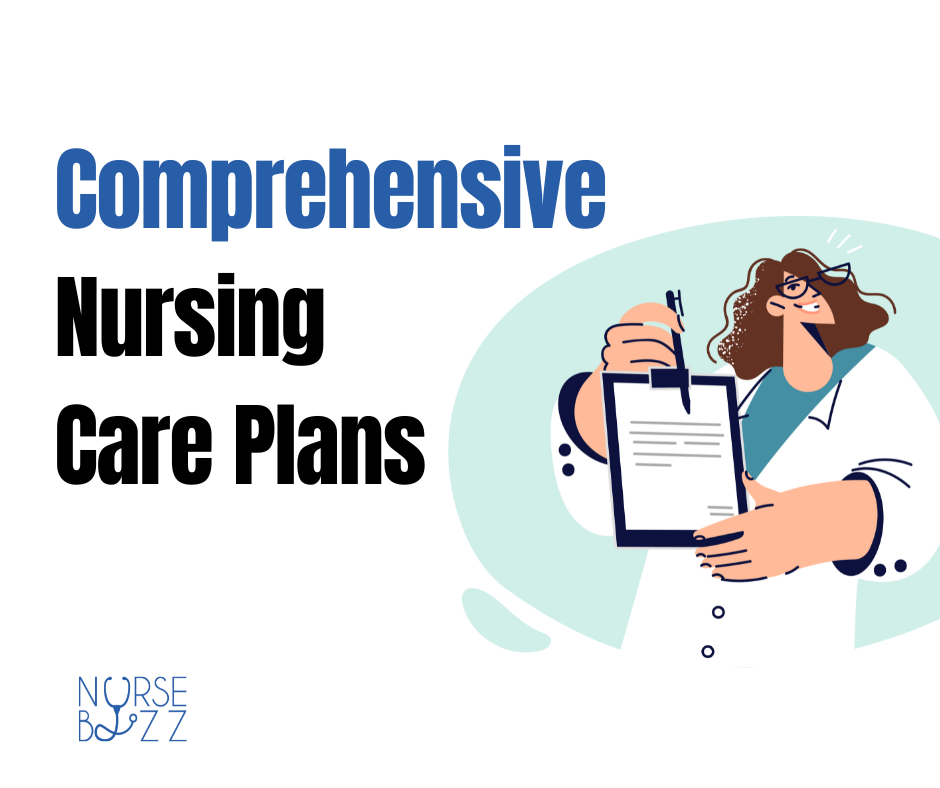Discover the steps and qualifications required to become a travel nurse and gain insights into the salary potential in this dynamic healthcare profession.
Are you wondering how to become a travel nurse? If you’re passionate about nursing and love exploring new places, becoming a travel nurse might be the perfect career choice for you. This exciting profession offers a unique blend of adventure and healthcare, but it requires specific qualifications and steps to get started. In this comprehensive guide, we will walk you through the journey of steps to become a travel nurse, from the necessary qualifications to salary expectations and more.
1. What is a Travel Nurse?

A travel nurse is a registered nurse (RN) who takes on temporary assignments at various healthcare facilities across the country, such as hospitals, clinics, and long-term care facilities. These assignments typically last from a few weeks to several months, allowing nurses to gain invaluable experience in different healthcare settings while savoring the perks of travel and adventure.
2. Educational Requirements
In order to start a career as a travel nurse, it’s essential to meet specific educational prerequisites, which are similar to those for registered nurses (RNs) and encompass the travel nurse qualifications. Here’s a closer look at the educational requirements:
A. Nursing Degree
The foundation of your journey to how to become a travel nurse is obtaining the necessary nursing degree. Most travel nursing positions require at least one of the following:
- Associate Degree in Nursing (ADN): This is a two-year program offered by many community colleges and technical schools. It provides the fundamental knowledge and clinical skills required to become a registered nurse.
- Bachelor of Science in Nursing (BSN): A BSN is a four-year degree program typically offered by universities and colleges. It provides a more comprehensive education, including additional coursework in areas such as leadership, community health, and research. Many healthcare facilities prefer BSN-prepared nurses, and having a BSN may open up more opportunities in travel nursing.
B. Licensure as a Registered Nurse

Whether you have an ADN or a BSN, you must obtain licensure as a registered nurse (RN) to work in the field. This involves successfully passing the National Council Licensure Examination for Registered Nurses (NCLEX-RN), a standardized exam that assesses the knowledge and skills required for safe and effective practice as an entry-level RN.
The NCLEX-RN exam covers various nursing topics, including medical-surgical nursing, pediatrics, obstetrics, and psychiatric nursing. Preparing for this exam often involves completing a nursing program, followed by rigorous studying and review in preparation for the test.
C. Continuing Education
Once you’ve become a registered nurse, your educational journey doesn’t end. Many healthcare facilities and travel nursing agencies may prefer or require travel nurses to have additional certifications and training in specific specialties, such as critical care, emergency room nursing, or labor and delivery. Obtaining these certifications, alongside understanding how to become a travel nurse, can enhance your qualifications and make you more competitive in the job market.
In addition to specialty certifications, you may also need to maintain your RN license by meeting state-specific continuing education requirements. These requirements vary by state and are essential for keeping your nursing credentials up to date.
Read About: Comprehensive Nursing Care Plans for Holistic Patient Care
3. Finding the Right Agency

As a travel nurse, your journey is closely linked to the agency you choose. They connect you with facilities in need of temporary nursing staff. Let’s explore how to make the right choice.
A. Research and Evaluation: When choosing a travel nursing agency, look for those that specialize in travel nursing, have a strong reputation, and are licensed in the states where you plan to work.
B. Assignment Options: Consider your preferences for location, specialty, and assignment duration to find the agency that aligns with your goals.
C. Compensation and Benefits: Understand the agency’s pay structure, housing options, and benefits package, including health insurance and retirement plans.
D. Support and Resources: Assess the level of support offered by the agency, including access to a dedicated recruiter and a thorough orientation process.
E. Contractual Agreements: Review your contract terms carefully, understanding assignment length, responsibilities, and legal considerations.
F. Communication: Maintain open communication with the agency to address questions and concerns during your assignments for a smooth and successful travel nursing experience.
4. Salary and Compensation
Travel nursing offers an attractive financial package, making it a sought-after career choice for many registered nurses. Here’s a closer look at the salary and compensation factors:
A. Competitive Base Pay
Travel nurses typically receive a competitive base pay rate, but understanding how to become a travel nurse can help you navigate the variations in pay. The exact rate can vary based on factors such as the location of the assignment, the demand for nurses in that area, your level of experience, and the healthcare facility’s budget.
B. Bonuses and Incentives

In addition to their base pay, travel nurses often enjoy a range of bonuses and incentives, which become vital factors that attract many people to explore the steps to become a travel nurse.
C. Housing Stipends or Accommodations
Housing is a critical consideration for travel nurses, as you’ll be relocating frequently. Many agencies offer either housing stipends or fully furnished accommodations. Here’s what to know about these options:
- Housing Stipend: If you choose a housing stipend, which is a common option for travel nurse qualifications, you’ll receive a set amount of money to cover housing expenses. You’re responsible for finding and securing your housing, which allows for flexibility in choosing accommodations that suit your preferences.
- Agency-Provided Housing: Some agencies offer fully furnished accommodations, eliminating the need for you to find and secure housing. This option can simplify the logistics of your assignments, but it may come with limitations on location and housing quality.
D. Benefits Package
Comprehensive benefits can contribute to the overall value of your travel nursing position. Many agencies offer benefits such as:
- Health Insurance: Access to health insurance plans to cover medical expenses, including doctor visits, prescriptions, and hospital stays.
- Dental Coverage: Dental insurance plans that can help with the costs of routine dental care and procedures.
- Retirement Plans: Options for saving for retirement, such as 401(k) plans, which may include employer contributions.
- Professional Liability Insurance: Coverage for professional liability issues, providing peace of mind while you work in different healthcare settings.
E. Maximizing Earnings
To make the most of your earning potential as a travel nurse, consider these strategies:
- Choose High-Demand Locations: Opt for assignments in regions with high demand for travel nurses, as these positions often offer higher pay rates.
- Negotiate Your Contract: Don’t hesitate to negotiate your contract terms, including pay rates, bonuses, and benefits. Experienced travel nurses may have more room for negotiation.
- Acquire Specialized Certifications: Gaining certifications in high-demand specialties, which align with essential travel nurse qualifications, can increase your marketability and lead to higher pay.
- Work Overtime: If your schedule allows, working overtime shifts can significantly boost your income.
5. Job Locations and Specialties

One of the most appealing aspects of a career as a travel nurse is the diversity of job locations and nursing specialties available. These diverse options are part of what makes the steps to become a travel nurse so exciting and enriching. Here’s a more in-depth look at the available choices:
A. Job Locations
- Urban Hospitals: Travel nurses often have the opportunity to work in bustling urban hospitals in major cities. These facilities tend to be larger and more fast-paced, offering a wide range of medical services and advanced technology.
- Rural Clinics: If you prefer a quieter and more rural setting, there are assignments available in clinics located in smaller towns and rural areas. Working in rural healthcare settings can provide a unique and rewarding experience.
- Suburban Healthcare Facilities: Suburban healthcare facilities offer a middle ground between urban hospitals and rural clinics. They provide a variety of healthcare services but in a less hectic environment than major city hospitals.
- Teaching Hospitals: Travel nurses can gain valuable experience at teaching hospitals affiliated with medical schools. These institutions often provide a rich learning environment and exposure to cutting-edge medical practices.
- Specialty Hospitals: There are specialized hospitals that focus on specific medical areas such as orthopedics, cardiac care, or cancer treatment. Travel nurses can explore these unique facilities to gain expertise in their chosen specialty.
- Long-Term Care and Skilled Nursing Facilities: Assignments in long-term care and skilled nursing facilities are available for travel nurses interested in providing care to elderly and chronically ill patients.
- Correctional Facilities: Some travel nurses opt to work in correctional facilities, providing healthcare services to incarcerated individuals.
B. Nursing Specialties

Travel nurses are not limited to a single nursing specialty, and their travel nurse qualifications enable them to diversify their skill set by working in various specialties, including:
- Medical-Surgical Nursing: This specialty involves caring for patients with various medical conditions, typically in a hospital setting.
- Critical Care Nursing: Critical care nurses operate in intensive care units (ICUs) and various high-acuity settings, where they deliver specialized care to patients in critical condition.
- Labor and Delivery: Labor and delivery nurses assist with childbirth and provide care to pregnant women before, during, and after labor.
- Pediatric Nursing: Pediatric nurses work with children and adolescents, addressing a wide range of health needs specific to these age groups.
- Emergency Room (ER) Nursing: ER nurses handle a variety of urgent and emergent cases, making quick assessments and providing immediate care.
- Operating Room (OR) Nursing: OR nurses assist during surgical procedures, ensuring that the operating room functions smoothly and patients are safe.
- Psychiatric Nursing: Psychiatric nurses work with patients dealing with mental health and behavioral issues, providing support and treatment.
- Oncology Nursing: Oncology nurses specialize in caring for cancer patients, offering emotional support and symptom management.
- Travel Nurse Practitioner: Some travel nurses become nurse practitioners (NPs) and provide primary care services, including diagnosing and treating medical conditions.
- Specialized Certifications: Travel nurses can acquire specialized certifications, such as Certified Critical Care Nurse (CCRN) or Certified Emergency Nurse (CEN), to work in specific high-demand specialties.
6. Challenges and Benefits

Becoming a travel nurse is a dynamic and rewarding career, but it also presents unique challenges and benefits. Understanding both sides of the coin, including the steps involved in how to become a travel nurse, is essential for making an informed decision and thriving in this profession.
A. Benefits of Being a Travel Nurse
- The Lifestyle as a Travel nurse: The lifestyle of a travel nurse is an enticing blend of adventure and healthcare. Travel nurses relish the opportunity to explore diverse cities and regions while advancing their nursing careers. From urban hospitals to rural clinics, they experience various healthcare settings, enriching their professional growth. Despite the challenges of frequent relocations and adapting to new environments, this lifestyle appeals to those who value both career development and the excitement of discovering new places.
- Higher Earning Potential: Travel nurses often earn competitive salaries and enjoy bonuses, housing stipends, and other financial incentives that can lead to higher overall compensation.
- Professional Growth: You’ll have the opportunity to work in a variety of healthcare settings, learn from different medical teams, and gain experience in multiple specialties, which can significantly enhance your professional growth.
- Diverse Patient Populations: Working in different locations exposes you to diverse patient populations, broadening your clinical skills and cultural competence.
- Flexibility: Travel nurses have the flexibility to choose their assignments, allowing them to tailor their career to their preferences and needs.
- Networking: Travel nursing facilitates networking with professionals from various healthcare facilities, which can lead to new opportunities and connections in the field.
- Skills Enhancement: Exposure to various healthcare settings and patient cases enhances your problem-solving skills and adaptability.
- Tax Advantages: Travel nurses may be eligible for tax benefits, such as deductions related to travel expenses, housing, and meals.
B. Challenges of Being a Travel Nurse
- Frequent Relocation: Moving every few months to a new location can be challenging, particularly if you have family or personal commitments.
- Adjustment Period: Adapting to new hospital policies, procedures, and documentation systems during each assignment can be demanding.
- Lack of Job Security: Travel nursing positions are temporary, and job security is not as stable as a permanent nursing position.
- Isolation: Frequent relocations can sometimes lead to feelings of isolation or difficulty in building long-term relationships.
- Stress and Burnout: The fast-paced nature of travel nursing and the need to adapt quickly to new environments can be stressful, potentially leading to burnout.
- License and Certification Requirements: Managing state-specific licensing requirements and keeping certifications up to date can be a logistical challenge.
- Healthcare Benefits: Health insurance benefits can vary by agency, and some travel nurses may find these benefits less comprehensive than what they are used to in permanent positions.
- Housing Arrangements: Coordinating housing, whether through stipends or agency-provided housing, requires effort and planning.
7. Conclusion
In conclusion, how to become a travel nurse is an exciting and rewarding journey that allows you to combine your passion for nursing with your desire for adventure. By fulfilling the educational prerequisites, selecting the appropriate agency, and gaining insight into the salary and compensation framework, you can embark on a rewarding journey in your career as a travel nurse.
8. FAQ
Q: Is it hard to be a travel nurse?
A: Becoming a travel nurse can be challenging due to the need for adaptability and frequent relocation. However, it can also be highly rewarding.
Q: What degree do most travel nurses have?
A: The majority of travel nurses typically hold either an associate degree in nursing (ADN) or a bachelor of science in nursing (BSN) and are registered nurses (RNs).
Q: Where do you sleep as a travel nurse?
A: Housing arrangements vary, but most agencies provide housing options, including furnished apartments or stipends for securing your accommodations during your assignment.




